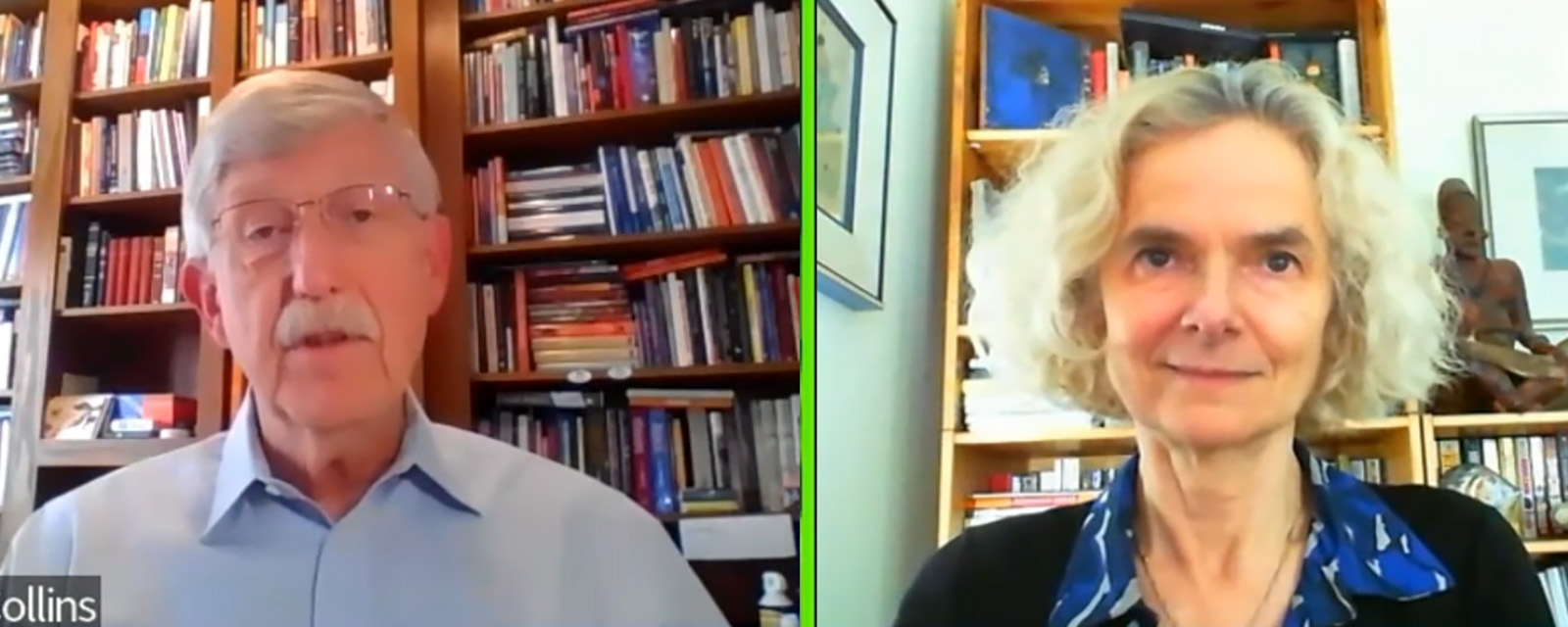
Dr. Francis Collins & Dr. Nora Volkow
Many clinical trials and research initiatives targeted to the opioid crisis have had to be placed on hold while our country focuses on responding to the COVID-19 pandemic. However, the potential that awaits just over the horizon is encouraging, stated two of the country’s leading researchers.
Dr. Francis Collins, Director of the National Institutes of Health (NIH), and Dr. Nora Volkow, Director of the National Institute on Drug Abuse (NIDA) – both long-time contributors to the Rx Drug Abuse & Heroin Summit – joined Thursday, April 16, for a conversation to discuss the status of promising research.
Currently, approximately $900 million in HEAL research projects have “had to stop almost completely” in order to focus on other needs, Volkow said, adding researchers are unable to access jails and they cannot recruit patients for clinical trials.
She was referring to the NIH HEAL (Helping to End Addiction Long-term) Initiative), an aggressive, trans-agency effort to speed scientific solutions to stem the national opioid public health crisis. Nearly every NIH Institute and Center is accelerating research to address this public health emergency from all angles.
A major component of HEAL is the HEALing Communities Study, launched in April 2019 by NIH and the Substance Abuse and Mental Health Services Administration. This study is designed to investigate how tools for preventing and treating opioid misuse and OUD are most effective at the local level.
The study – being conducted in four areas of the country with higher rates of opioid fatalities (Kentucky, Ohio, New York and Massachusetts) – is testing the impact of an integrated set of evidence-based practices across health care, behavioral health, justice, and other community-based settings. It is also looking at the effectiveness of coordinated systems of care designed to increase the number of individuals receiving medication to treat OUD, increase the distribution of Naloxone, and reduce high-risk opioid prescribing.
Collins stated that more than 400 pain and addiction experts gathered in January to collaborate on this project. “We now have a community – a HEAL community – that is invested in finding solutions,” he said. “All of these developments do give me hope,”
Asked about the state of the opioid crisis, Volkow said we must keep an eye on the trends. Having progressed from prescription opioids to heroin to fentanyl, the country is now experiencing an alarming increase in psycho-stimulant drugs such as meth and cocaine – along with poly-use of drugs.
Unlike opioids, there are no medications for meth addiction or overdose, she said. “So, it becomes more challenging,” and is a major priority to solve and address.
Volkow said there are some “exciting” initiatives underway:
- Biologics – Vaccines are currently in clinical trials for meth and heroin addiction.
- Neuromodulation – Data on this targeted delivery of stimulus to treat pain non-medically is “quite positive.”
- HEAL – The program has been able to bring together players who have not previously collaborated to maximize integrated efforts.
- Innovation – Through grants, look at opportunities to increase access to, and help people stay in, treatment.
Dealing with situations such as the COVID-19 pandemic increases anxiety and uncertainty among individuals with substance use disorders and makes them more vulnerable to adverse outcomes, Volkow stated. In addition, access to treatment becomes limited and social isolation lowers the chance that someone who overdoses will be given life-saving assistance.
An urgent need for the short-term is to continue efforts at removing the stigma surrounding substance use disorders, Volkow said.
Both Collins and Volkow stated medication-assisted treatment (MAT) was an important component of treatment for substance use disorders. It is equally important to provide long-term support, especially for those being released from incarceration.
“Community plays a critical role in helping people sustain their recovery,” Volkow said, but stressed prevention is also an important component.
“We have a mission that we can help other people,” Volkow said, noting social isolation and neglect only leads to increased drug use and relapse, “We have eroded that social sense of community,” she added. “We do need each other in very fundamental ways … for our well-being.”
